Food waste reduction Related News
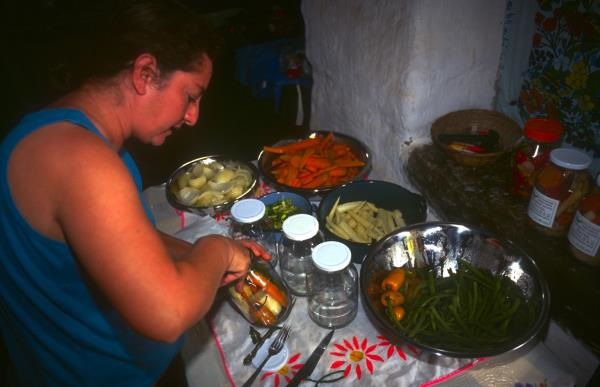
COVID-19 Series / Tips for the Preservation of Fruits and Vegetables to Reduce Food Waste and Improve Shelf-Life
06/04/2020
With physical distancing and reduced shopping trips to supermarkets, buying large quantities of fresh fruits and vegetables becomes difficult, with the risk of them going to waste, during this COVID-19 pandemic. There are, however, simple ways in which fruits and vegetables can be preserved at home to reduce waste. Many vegetables, can be blanched by dipping in boiling water for approximately 5 minutes and then pickled and fermented. Fruits can be preserved by blanching and freezing, juicing, drying, frying, or preserved with sugar into jams and fruit preserves.
Root crops and bananas can be fried to produce chips.
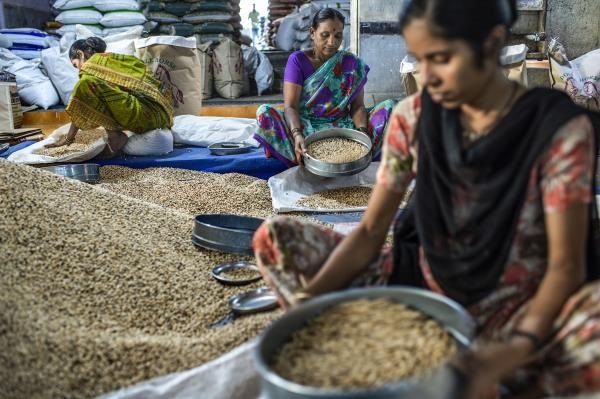
COVID-19 Series / Improving the Storability and Availability of Pulses by Reducing Post-Harvest Losses
20/04/2020
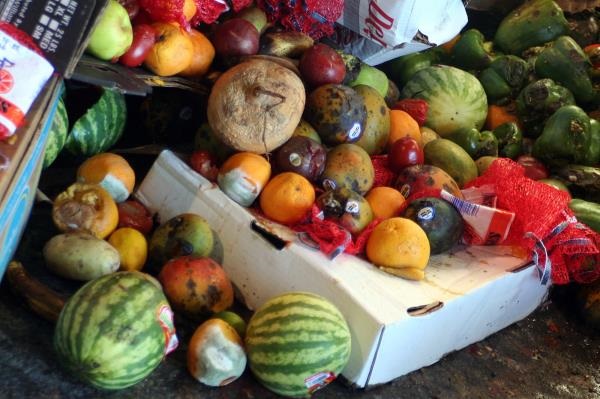
Mitigating risks to food systems during COVID-19: Reducing food loss and waste
15/07/2020

NOT IN MY BIN! How the Mediterranean Diet can contribute to Food Loss and Waste reduction
08/09/2020

Indian and European students network engaged in DO GOOD: SAVE FOOD! projects
23/02/2021
Eumind (Europe meets India) is a network of schools aimed at facilitating learning across the borders. It creates and supervises virtual exchange projects in which Indian and European students work together on real-life issues such as sustainability, human rights and arts & culture. Among other projects done by students on various subjects, inspired by the FAO DO GOOD SAVE FOOD education material, a new project was launched on 'Saving Food' following the DO GOOD SAVE FOOD tool kit.

2021 International Day of Awareness of Food Loss and Waste global virtual event
22/09/2021
Food waste reduction Related Publications
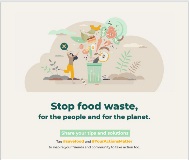
Your guide to living free of food waste
01/09/2021
It offers tips and hands-on recommendations on how to reduce food waste in our lives as consumers - be it when shopping for food, cooking at home, or eating out - by introducing simple habits and making small changes every day.
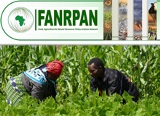
Integrating Gender Roles, Social Equity and Post Harvest Management Policies to Improve Rural Household’s Food Security
01/01/2017
This policy brief describes the current status of policies and programs in Benin and Mozambique, with the aim of identifying potential gender and social sensitive post-harvest initiatives, thereby supporting their transition to a more sustainable and inclusive food security economy.

Announcing YieldWise: How the World Can Cut Food Waste and Loss by Half
01/01/2016
Over the last three years, we have explored interventions as part of our ongoing work to strengthen African farmers like Sella. We learned that there are many existing solutions—yet these solutions were not reaching smallholder farmers. We are dedicated to re-aligning actors and interventions, such as expanding proven technologies that...
-programme.tmb-th600x450.jpg?Culture=en&sfvrsn=f0438b12_1)
The Sustainable Food Systems (SFS) Programme
01/01/2020
The Sustainable Food Systems (SFS) Programme is a multi-stakeholder partnership focused on catalyzing more sustainable food consumption and production patterns. Our shared vision enables our partners to collaborate on joint initiatives, which range from normative, advocacy and policy support activities, to research and development projects as well as on-the-ground implementation.
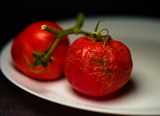
European Food Banks today: commitment, creativity, and openness to change
16/09/2020
Even during the unexpected and unprecedented COVID-19 pandemic, Food Banks belonging to the European Food Banks Federation are showing evidence to be resilient through their daily dedication and determination. The context can vary from country to country, but all European Food Banks are showing similar challenges.
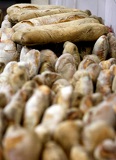
How to Prevent Bread Losses in the Baking and Confectionery Industry? Measurement, Causes, Management and Prevention
30/12/2020
Food losses and waste are associated with inefficient use of agricultural land, water and other resources and agricultural raw materials. Reducing the scale of food wastage is one of the most urgent challenges for food system operators, starting from agriculture to food consumption in the households.

Food loss and waste and the linkage to global ecosystems
01/01/2017
The impacts of food loss and waste are not only connected to the agricultural or aquatic ecosystems where food is produced. Food commodities are transported and traded across continents and additional inputs are needed for each activity in the supply chain.
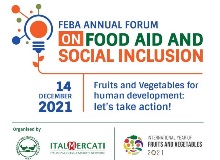
Report of FEBA Annual Forum on Food Aid and Social Inclusion "Fruits and vegetables for human development: let’s take action!"
01/01/2022
On 14 December 2021, the European Food Banks Federation organised its Annual Forum on Food Aid and Social Inclusion with the title “Fruits and vegetables for human development: let’s take action!”. This conference is organised by FEBA together with Italmercati. On this ocassion, we bring together distinguished speakers addressing the...
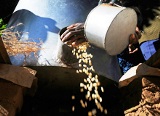
Food Loss and Waste Management during Covid-19: Exploring the Major Challenges and Future Directions Along the Food Supply Chain
01/01/2021
A special Issue of Socio-Economic Planning Sciences. A collection of scientific articles from all around the world.

Coping strategies of dairy cooperatives and loss and waste reduction during the COVID-19 pandemic: the case of India and Japan
01/04/2021
Unlike any other crisis, the COVID-19 pandemic significantly impacted food value chains at all levels (production, processing, logistics and even consumer behaviour to name a few). The impacts vary across countries and are constantly changing with the spread of the pandemic as governments, stakeholders and other actors in value chains...

Toolkit. Reducing the Food Wastage Footprint
01/01/2013
The aim of the Toolkit is to showcase concrete examples of good practices for food loss and waste reduction, while pointing to information sources, guidelines and pledges favoring food wastage reduction. The inspirational examples featured throughout this Tool kit demonstrate that everyone, from individual households and producers, through governments, to large food industries, can make choices that will ultimately lead to FLW reduction.

The High-Level Multi-Stakeholder Consultation on Food Losses and Food Waste in Asia and the Pacific Region | Report
01/01/2014
The Food and Agriculture Organization of the United Nations (FAO) in 2011, launched the Save Food Initiative, which is a global initiative on food loss and waste reduction. Under the banner of this initiative, the FAO Regional Office for Asia and the Pacific (RAP), in December 2012, established collaboration with the Asian Institute of Technology (AIT), Thailand to launch a region-wide Campaign under the banner, “Save Food Asia-Pacific.”

Bellagio Statement on Postharvest Management
26/03/2018
The Bellagio Statement is first and foremost a collective commitment to collaborate and scale- up effective actions. It is also a call for large-scale, sustained, coordinated and mutually sup- portive actions from all stakeholders across agri-food systems, including farmers, aggregators, traders, retailers, PHM technology and service providers, financial institutions, governments, etc.

The role of producer organizations in reducing food loss and waste
01/01/2012
The losses incurred in developing countries are largely due to infrastructural constraints related to poor transport, storage, processing and packaging facilities, in addition to capacity gaps that result in inefficient production, harvesting, processing and transport of food.
-reduction-rapid-needs-assessment-working-document---malawi-.tmb-th600x450.jpg?Culture=en&sfvrsn=daad216f_3)
Continental Programme on Post-Harvest Losses (PHL) Reduction Rapid Needs Assessment – Working Document - Malawi
01/01/2011
The post-harvest chain involves a series of interconnected activities from the time of crop harvest, live animal sales at farm gate, milk at immediate post-milking stage, or fish capture to the delivery of the food to the consumer. The nature of the activities varies considerably according to the type of...

Food loss and waste and the right to adequate food: Making the connection
01/09/2018
The issue of FLW has initiated an international debate on the global food system. As such, discussions ought to tackle the root causes of the issue: not only should the unsustainability of food systems be addressed, but also the relationship between resource-intensive consumption patterns and current global food production.
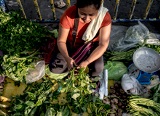
Purchasing Patterns and Consumer Level Waste of Fruits and Vegetables in Urban and Peri-Urban Centers in the Philippines
01/01/2017
In Food and Nutrition Sciences, Vol.8 No.10, 2017 | Fruits and vegetables are inherently perishable hence they are considered as one of the most wasted categories of food. While several studies have been conducted to assess consumer level waste of fruits and vegetables, few have been conducted in developing countries.

Food waste in Italian households during the Covid-19 pandemic: a self-reporting approach. Food Sec. 13, 25–37 (2021)
01/01/2021
Food waste prevention and reduction are an economic, social and environmental concern included among the 17 Sustainable Development Goals (SDGs) within Agenda 2030 for Sustainable Development. The third target under SDG 12 (Target 12.3) on Responsible Production and Consumption aims to halve food waste by 2030 at retail and consumer...

The future of food banks
01/01/2019
The skill-sharing session “Partnerships for the SDGs 12.3” was organized by the European Food Banks Federation in collaboration with Fondazione Banco Alimentare Onlus on 7-8 November 2019 in Rome. During these two days, 24 Food Bank representatives from 15 European countries shared best practices and experiences about existing strong partnerships.

Why Reducing Food Loss and Waste Matters
01/12/2021
A reduction in food loss and waste will not only help conserve precious natural resources and reduce the greenhouse gas emissions, it will also help strengthen global food security and improve access to nutrition for vulnerable populations. Read the article ... © Institute of Food Technologists
